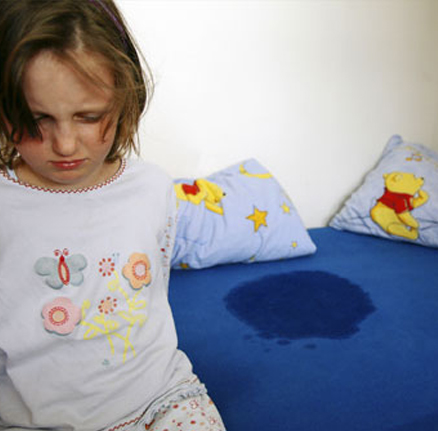1. Banish the Blame:-
Getting angry with your little one and punishing him/her for wetting the bed will only add pressure to stay dry and will make the problem worse. Don't make a big deal out of it; offer some comfort instead. Often, when parents don't talk about bedwetting, children think they are the only ones going through it. Reassure your child that he/she is not alone, and that bedwetting is very normal among his/her age group.
2. Talk to the Pediatrician
Tell your pediatrician about the bedwetting, so she can track your child's progress and offer suggestions for handling the situation. If your child is older than 5, or if the bedwetting starts abruptly, discuss if there is a reason why it's occurring. Talk to your doctor about possible causes, for instance, urinary tract infections, diabetes, or even stress, and other possible reasons and medical solutions. Keep in mind, though, that in many cases there isn't a physical reason for bedwetting. It's just a delay in the development of night time bladder control.
3. Encourage Bathroom Trips Before Their Bedtime:-
Make sure your child goes to the bathroom before her/him bedtime. When your child empties her/him bladder, there's less of a chance he/she'll have to urinate during the night. This technique won't "cure" bedwetting, but it can be an effective way to keep the bed dry through the night. Some paediatricians also suggest limiting your child's intake of fluids a few hours before bedtime.
4. Check for Constipation:-
Constipation is a common cause for bladder problems. When the rectum, located just behind the bladder, is filled with large or hard poop, there is more pressure on the bladder. This causes bladder instability, which, in turn, can lead to night time (or even daytime). If you notice that your child isn't having a daily bowel movement or if his/her stool is typically hard, increase his/her fluid and fibre intake. Apple juice, fruits, vegetables, and whole grains are all good options to help ease constipation and get the system working better again.
5. Purchase a Moisture Alarm:-
A moisture alarm wakes your child the second he/she wets the bed. The interruption in sleep can condition the brain to control the bladder better and help prevent accidents. This method is about 75 percent effective, and tends to work when children themselves are ready to be dry.



